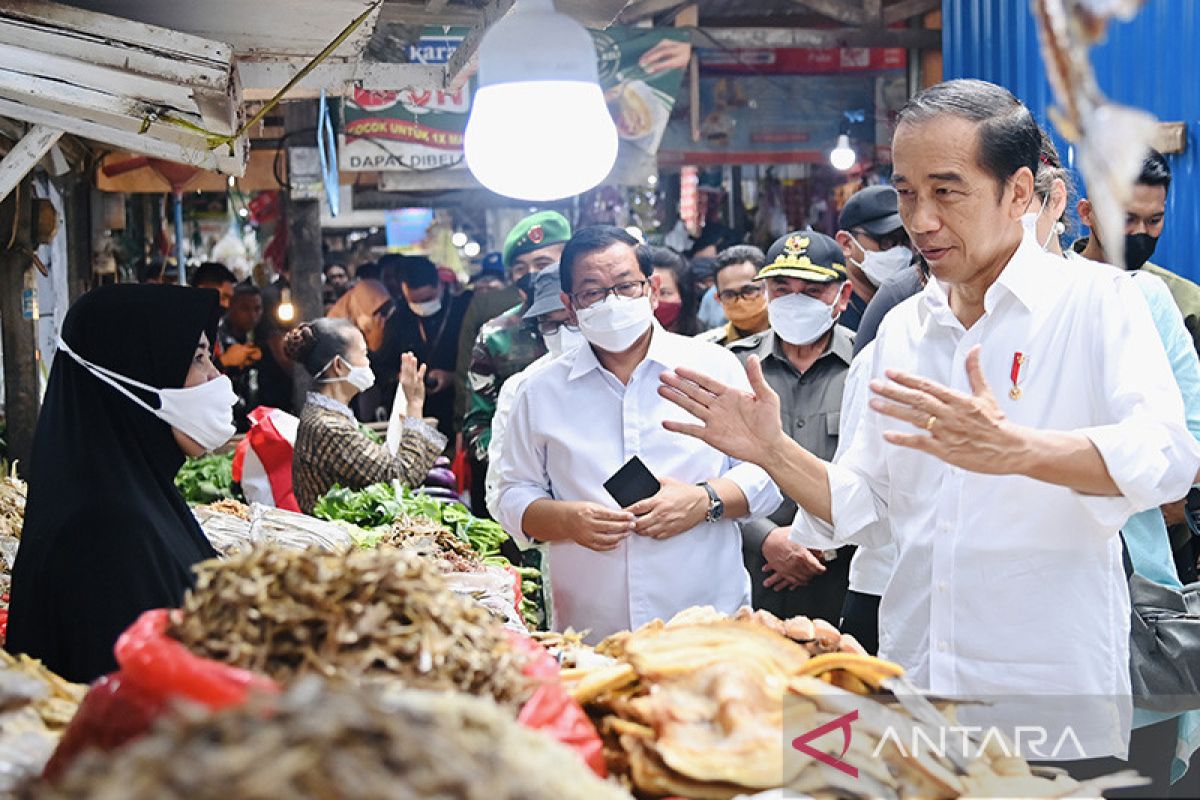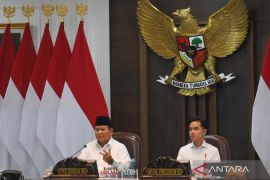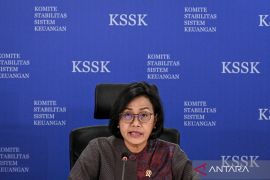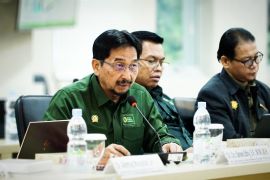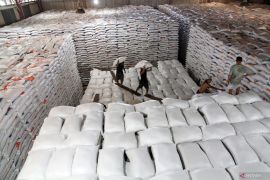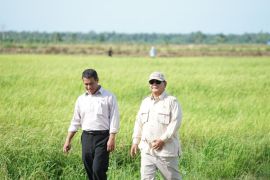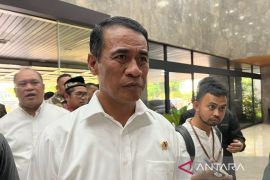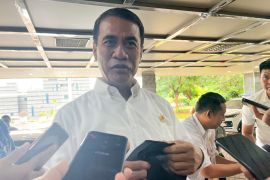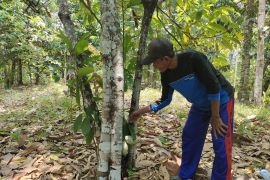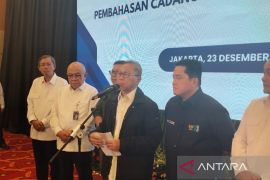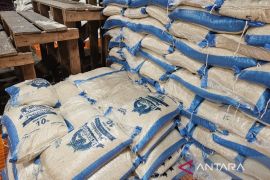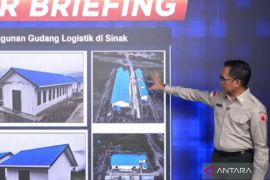Based on a copy of the regulation, which was obtained from the website of the Legal Documentation and Information Network (JDIH) of the State Secretariat, Jakarta, on Thursday, to maintain food availability throughout Indonesia, it is necessary to master and manage CPP, whose implementation has been assigned to state-owned enterprises (BUMN).
CPP in the form of certain staple foods will be determined based on the type and amount. Certain staple foods are defined as staple foods produced and consumed by the majority of the Indonesian people. If their availability and price are disturbed, they can affect economic stability and cause social unrest in the community.
"Certain staple foods that are designated as government food reserves (CPP) include rice, corn, soybeans, onions, chilies, poultry meat, poultry eggs, ruminant meat, consumption sugar, cooking oil, and fish," according to Article 3 of the presidential regulation, which was signed by President Widodo on October 24, 2022.
Related news: National Food Agency continues to be vigilant about food supply
However, the President can determine other types of food as CPP as per Article 3 paragraph (4) of the regulation.
Even though it stipulates 11 commodities, Article 3 paragraph (6) of the presidential regulation states that the first stage of CPP implementation is for rice, corn, and soybeans.
In relation to the implementation of CPP, Article 5 states that the National Food Agency shall carry out CPP planning, including setting distribution targets and CPP procurement targets.
To carry out CPP, which will include procurement, management, and distribution, Article 12 states that the government may involve the State Logistics Agency (BULOG) and/or BUMN in the food sector.
"The government has assigned Perum Bulog to organize the first stage of CPP, which includes rice, corn, and soybeans," Article 12 paragraph (2) states.
As per Article 11, the government can distribute CPP to tackle food shortages, food price fluctuations, natural disasters, social disasters, and emergencies.
The CPP can also be distributed for stabilizing food prices, handling food problems, overcoming food crises, implementing food assistance, and as part of international cooperation, foreign food assistance, and other needs determined by the government.
Related news: World Food Day a momentum to improve food sector: NFA
Related news: Govt supports food distribution from food-surplus to deficit regions
Translator: Indra AP, Azis Kurmala
Editor: Suharto
Copyright © ANTARA 2022
